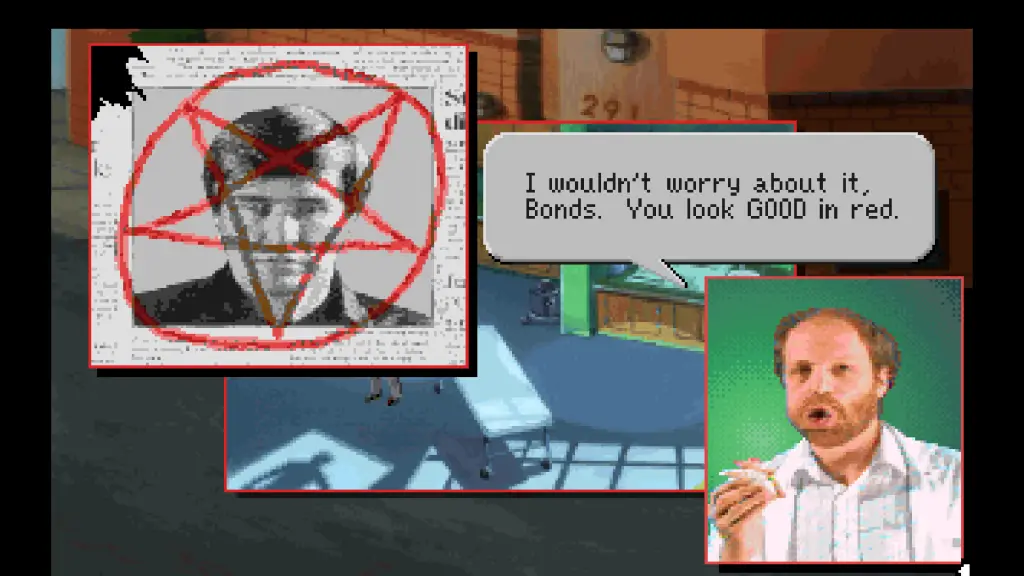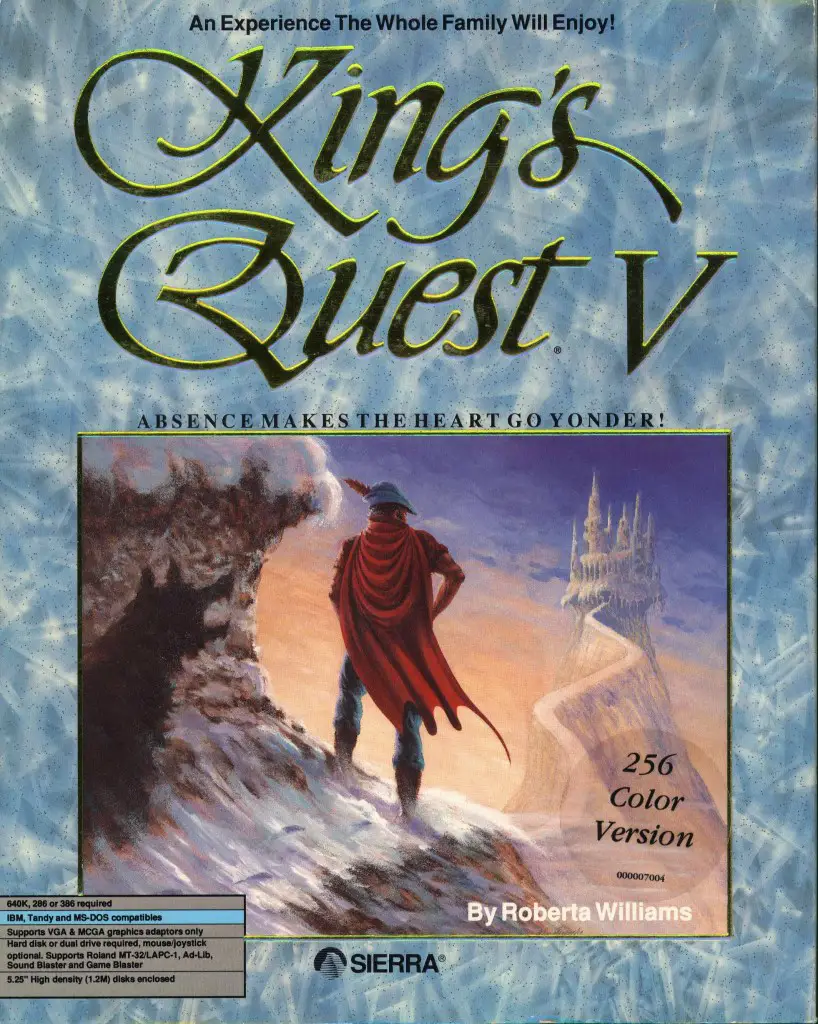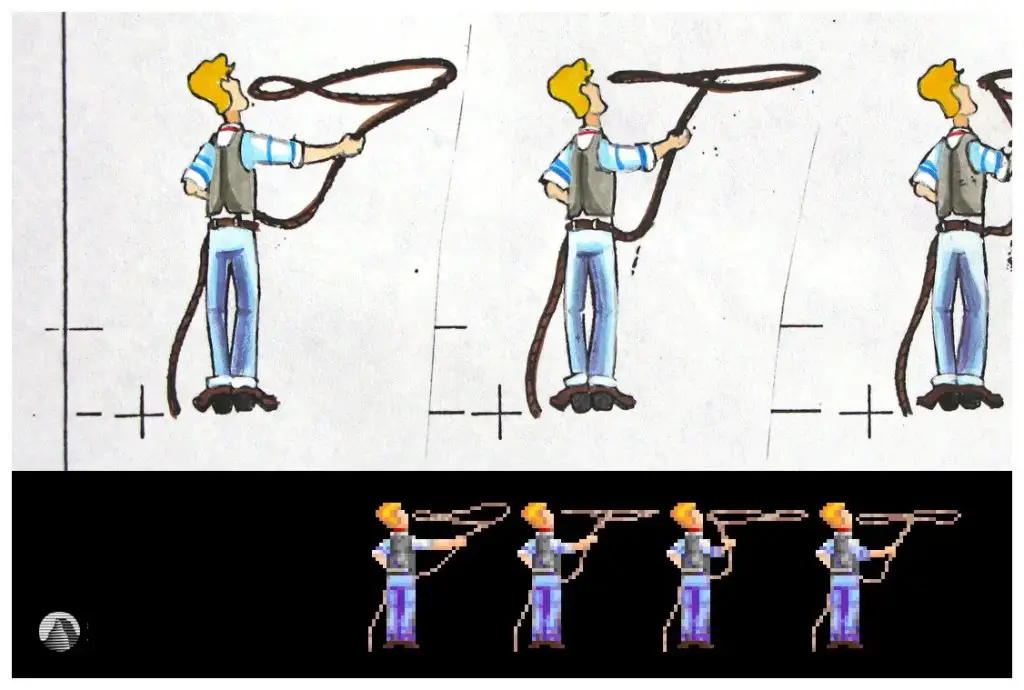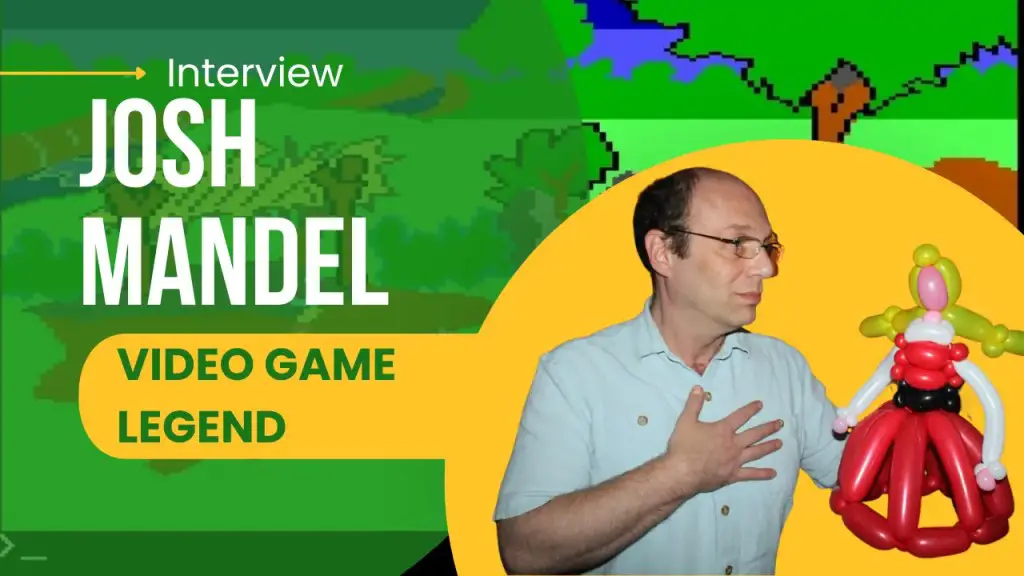Table of contents
- About Josh Mandel
- Inspiring Beginnings in Game Design
- Experiences and Influences from Sierra Entertainment
- Observations on Evolving Game Industry Trends
- Groundbreaking Innovations in Game Design
- The Influence of Varied Roles in Game Development
- Lessons from Voice Acting in King’s Quest
- Transitioning Challenges within Game Genres and Platforms
- Impact of Collaboration in the Gaming Industry
- Behind the Scenes of “Freddy Pharkas, Frontier Pharmacist”
- Career Advice for Budding Game Designers
In the fascinating and ever-evolving world of video game design, a handful of influential figures have left indelible marks on the industry. Today, we’re excited to share a rare and insightful conversation with one of these pioneers—Josh Mandel.
This in-depth interview spans his journey from the early days of basic programming to his experiences with modern, point-and-click adventure games. By sharing his rich history and insights, he offers a captivating view into the evolution of the gaming industry, the processes behind game creation, and the inspiration that keeps them pushing boundaries.
About Josh Mandel

Josh Mandel is a celebrated veteran in the gaming industry. With a career spanning over three decades, he’s seen and shaped the landscape of game design from the very beginning. His journey started in the late ’70s or early ’80s, with his first encounter with a rudimentary Colossal Cave Adventure game that ran on a monitor-less old system. This experience sparked a fascination for game design that continues to this day, making them an important contributor to the gaming world.
Throughout his career, he has worn multiple hats, working as a game designer, writer, voice actor, and producer. Each role added a unique perspective to his approach to game development, resulting in games that have touched millions of hearts around the globe. his repertoire includes well-known titles such as King’s Quest series and the distinctive game, Freddy Pharkas, Frontier Pharmacist.
his rich history in the industry, groundbreaking work, and unwavering dedication to pushing the boundaries of game design make this interview an enriching read for gaming enthusiasts, aspiring game designers, and anyone curious about the world of game development. So, let’s dive into this intriguing journey and learn from one of the industry’s esteemed game designers.
Inspiring Beginnings in Game Design
TFTC: In your own words, can you describe what inspired you to get into game design and what continues to motivate you in the industry?
Mandel: Back in what I believe was the 70s (but could’ve been early in the 80s), I was privileged to play the basic Colossal Cave adventure on one of those old systems that had no monitor — it printed out the responses to your input on a screeching inkjet or daisywheel printer. I also played the original Star Trek game on the same computer. I was instantly captivated by the possibilities of such a game, in particular the capacity for humor.
As soon as I got my first computer, I wrote a few adventure games in BASIC (the only programming language I ever learned), all comedic and based around my current workplace. I was completely hooked on the process of writing humorous responses to all the various outlandish things players could try. That is still the case today. I love nothing more than to write these messages, which I consider to be “rewards” for exploration.
In my opinion, the primary goal of adventure games (and all games, really) is “entertainment,” and I consider it a privilege and an honor to provide entertainment for adventure gamers.
Note: Colossal Cave Adventure is a text adventure game, developed between 1975-1977, that has influenced many game designers. It is considered the first instance of an adventure-style game.
Experiences and Influences from Sierra Entertainment
TFTC: How did working at Sierra Entertainment influence your approach to game design? Could you talk about any major lessons or memorable experiences from your time there?
Mandel: I don’t think that working at Sierra changed my approach to game design. If anything, it reinforced my feelings about the value of thinking ahead to what players might try, however illogical it might be, and provided amusing feedback for that. I did have to change my approach somewhat after the remake of King’s Quest 1, because I was suddenly (and unpleasantly) thrust into the world of point-and-click, where it became almost impossible for players to try unusual and novel things —the designer got to decide what would happen when you clicked the hand on something.
I tried to expand the world of exploration by coming up with messages (which were called “click-events”) if you clicked one inventory item on another inventory item, and I think I was the first to try that. FREDDY PHARKAS was full of them, although many of them were dropped from the CD version because of the extreme amount of time needed to record them all.
As far as memorable experiences, I always think back to the first time I saw one of my games — again, FREDDY PHARKAS —on the assembly line, the boxes being packed with the disks and manual, the boxes shrinkwrapped and loaded into cartons for shipping. At that point, I was severely sleep-deprived because of the crunch mode we had been in to get the game out, so that might have affected me, but I felt a rush of adrenalin such as I’d never experienced before. I was actually experiencing a high out of seeing the box in production.
Note: Sierra Entertainment is a software company that was one of the most influential developers of adventure games during the 1980s and 1990s. The company created popular series like King’s Quest, Leisure Suit Larry, and Gabriel Knight.
Observations on Evolving Game Industry Trends
TFTC: Given your long and varied career, you’ve seen the gaming industry evolve first-hand. What are some of the most significant changes you’ve seen and how have they influenced your work?
Mandel: Well, point-and-click has become the standard, which irritates me daily. I’ve also noted with dismay the domination of first-person shooters, which I have little use for and feel that they desensitize one to violence. Lastly, I have noted the popularity of multiplayer games, and I dislike those as I feel that when I play a game, I want to depend on the intelligence and availability of those in my party and those who I’m playing against, which varies widely when playing a multiplayer game.
Groundbreaking Innovations in Game Design
TFTC: As one of the pioneers in the industry, what do you think was the most groundbreaking innovation that you helped implement in game design?
Mandel: While I’d like to think that making every inch of screen real estate clickable (and enjoyable), I don’t think it’s caught on to any degree. It’s a ton of work for a designer. But I have been recognized for it numerous times (one reviewer referred to it as “Mandellian design,” which of course I found a great compliment).
Note: In a point-and-click game, interactions are mainly controlled by a two-button mouse or similar pointing device. “Mandellian design” refers to the subject’s specific style of making every element in the game world interactive and interesting.
The Influence of Varied Roles in Game Development
TFTC: You’ve been instrumental in a variety of roles throughout your career – game designer, writer, voice actor, and producer. How do these different roles influence one another and shape your overall approach to game development?
Mandel: It’s given me, I think, a greater degree of empathy for those various roles. For instance, I used to see the Producer as an enemy —someone whose job it was to limit my design, limit my text, limit the amount of art needed. I now know that the Producer has perhaps the hardest job in any production, and how necessary it is to work constructively with them.
From a voice-acting standpoint, I have learned to trust the actors to interpret my lines their own way, which is not always the way I hear in my head as I’m writing the lines. Occasionally I will still stop the actor and give them a different interpretation so as to get more humor out of the line.
As a writer, I have had to learn brevity, which is hard for me (as you can probably tell from my responses!).
Lessons from Voice Acting in King’s Quest

TFTC: How did your experiences voicing characters like King Graham from the King’s Quest series influence your perspective on game design?
Mandel: Voicing King Graham was an interesting and not entirely satisfactory experience for me, because the directors insisted on my character having one overriding attribute, to the detriment, I think, of the potential drama. I think this makes me supersensitive to ensuring that my characters have nuance, have a variety of emotions.
And I have learned to trust not only the voice actors to bring nuance to the characters, but I have also learned to trust the player to understand the subtext that the actors bring to their parts, rather than telegraphing it. I know a designer who constantly and frequently inserts ellipses to denote that the character is giving special significance to a word. I think that’s unnecessary and even untrusting of the player.
Transitioning Challenges within Game Genres and Platforms
TFTC: Can you speak about any challenges you faced when transitioning from traditional point-and-click adventures to other genres and platforms?
Mandel: Honestly, I tend to avoid working on games that don’t allow me to reward exploration, such as games where you simply click the cursor on whatever you chose to interact with, without even the choice of looking, handling, talking, etc. This has limited my opportunities in today’s market, but I’m happy to see that point-and-click adventures are experiencing a resurgence in popularity (if not in actual sales), which presents more opportunities for the kind of game I choose to work on.
Note: King’s Quest is a graphic adventure game series, primarily developed by Sierra Entertainment. The protagonist of the series, King Graham, is a classic character in video game history.
Impact of Collaboration in the Gaming Industry
TFTC: You’ve worked with some notable figures in the gaming industry like Al Lowe and Corey Cole. How did these collaborations influence your career and the projects you worked on together?
Mandel: Being able to collaborate is a great skill and I always look forward to collaboration. Left to my own devices, I’m liable to create vast game worlds and reams of text. This often is inappropriate for the subject matter and the budget. Al Lowe was great about keeping budget firmly in mind when designing a game, and thus you end up with fewer screens that are more densely packed with puzzles and interactivity. That works to my advantage. And Corey is a great fan of puns, which suited me perfectly as my game “Callahan’s Crosstime Saloon” is an unending series of puns, so working with him was a pleasure. I would collaborate again in a minute, if the opportunity presented itself, because I love bouncing ideas around and discussing, intelligently and intuitively, what the best choices are.
Note: Al Lowe is a game designer and programmer known for his work on the Leisure Suit Larry series. Corey Cole is another significant game designer known for the Quest for Glory series.
Behind the Scenes of “Freddy Pharkas, Frontier Pharmacist”

TFTC: Can you talk about the creation process behind a game like “Freddy Pharkas, Frontier Pharmacist”? What were your inspirations and what challenges did you face during the development?
Mandel: Well, Al Lowe made the first pass at the design, and developed a fairly complete document which we then went over together and tried to improve. For instance, the game originally contained a whole other area (several screens) based on the Chinatown that frontier towns often had. We axed that whole idea as being racially insensitive (not that we didn’t leave in some racially insensitive material that we would never use today). There were a good number of design ideas that I didn’t think should be included, but Al was in charge so what he wanted was law.
For instance, I felt that Al was being pigeonholed as “the dirty old man” of Sierra, and I thought the game should be cleaner and more family-friendly than it turned out to be. I didn’t particularly like the timed puzzles and the puzzles that I will politely call “scatological” —not that I object to scatological humor in general, but I thought that this was an opportunity to give Al a clean slate. He didn’t feel the same way about any of that, so the timed puzzles and the scatological humor stayed in (and I tried to make the best of it).
On the other hand, there were ideas I floated that he felt reluctant to use, but he gave me enough rope to allow me to try them. For instance, the opening bouncing-ball ballad was my concept for presenting what was a pretty complex backstory, and although Al was doubtful of it, he let me proceed, and I think it turned out to be a memorable aspect of the game. Such is the power of a good, respectful collaboration.
Note: “Freddy Pharkas, Frontier Pharmacist” is a comic Old West adventure game from Sierra Entertainment. The player controls Freddy and must solve puzzles in order to protect his town.
Career Advice for Budding Game Designers
TFTC: With your rich history in the industry, what advice would you give to budding game designers today? How can they learn from the past while pushing the boundaries of what’s possible in game design?
Mandel: I think the same approach I took to getting into the industry is probably still valid today: do not be afraid to take a much lower position on the ladder and work up slowly from there. I started off as a beta-tester, working from home in Chicago. I don’t know if beta testers can still work remotely, but if you can get a job beta-testing, that’s a foot in the door. Make yourself indispensable. Produce beta reports that the programmers and designers get maximum value from reading. Do a good enough job, and they will want to promote you to a position of greater responsibility.
As far as pushing the boundaries of what’s possible in game design, that comes later. No designer wants to hear from a beta tester, or a junior producer, how to redesign the game to make it more groundbreaking. Wait until you’re a level designer or lead designer, and then design the most groundbreaking level, or game, that you can. It’s only once you achieve that level of success that you can assert your influence enough to change the industry.

